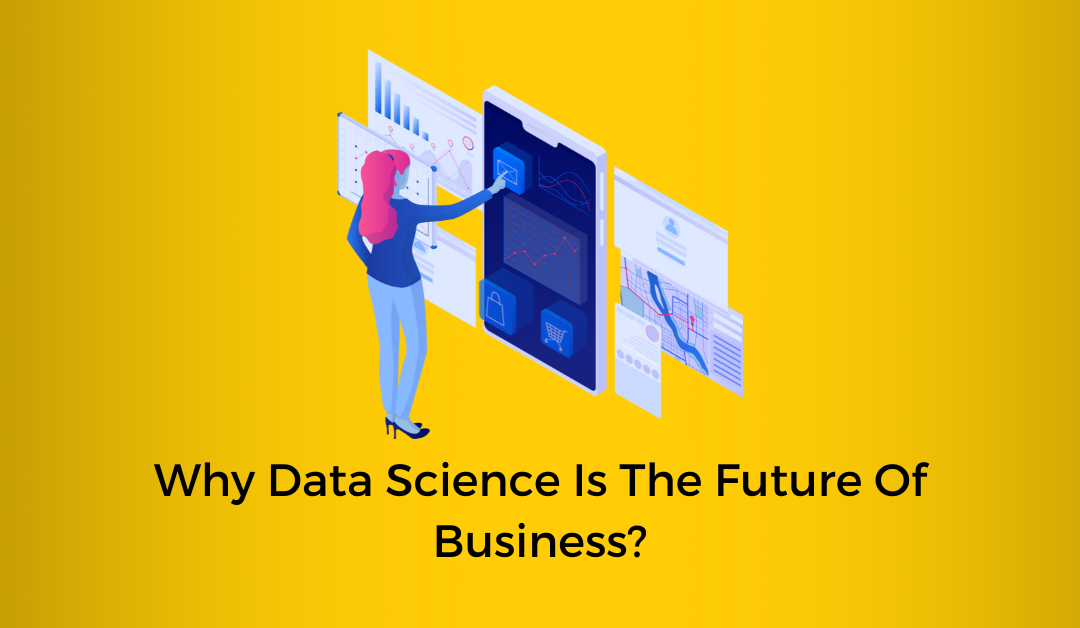Data Science remains one of the most valuable tools for businesses and organizations today, providing powerful insights into customer behaviors, productivity, and trends. Learn why Data Science is so important and how your company can use it to stay ahead of the competition.
Why Data Science is the future of Business
In this blog, I will be explaining the following topics
Table of Contents
- What is Data Science?
- Benefits of Data Science for Businesses
- Machine Learning and Artificial Intelligence (AI)
- Developing a Strategy for Data Acquisition
- Best Practices for Assessment and Analytical Tools Implementation
- Conclusion
What is Data Science?
Data Science is the process of extracting meaningful information from data sets. It involves collecting, analyzing, and interpreting large amounts of structured and unstructured data to uncover valuable insights.
Techniques like machine learning and natural language processing are used to make sense of this data, and they are becoming increasingly important for businesses. With Data Science, companies can improve decision-making by understanding customer behavior or spotting trends in their industries.
Benefits of Data Science for Businesses
The most obvious benefit of Data Science for businesses is that it can help them make better and more informed decisions. With the right tools and expertise, companies can utilize data to measure KPIs (key performance indicators), create new predictive models, and improve their customer experience.
Companies can use Data Science to understand the impact of marketing campaigns, optimize their product development processes, or identify opportunities in their industry. It also allows organizations to have a competitive advantage over their competitors by understanding customer needs better than they do or using data-driven techniques to measure performance outcomes.
Developing a Strategy for Data Acquisition
It’s essential for businesses to develop a data acquisition strategy that enables them to effectively capture, store, and manage the data necessary for their analyses. By investing in technologies such as automated data entry systems and tracking progress toward goals over time, companies can ensure they have accurate and up-to-date data at all times.
Additionally, businesses should not only be collecting structured data but leveraging unstructured data sources such as customer support tickets, web forms, surveys, and analytics tools to gain further insight into how customers interact with their products. This can help organizations better understand customer needs and preferences so they can better tailor their offerings to optimize their customer experience.
Machine Learning and Artificial Intelligence (AI)
Machine learning and artificial intelligence are two of the most impactful developments in data science. By leveraging AI technologies, businesses can accurately predict user patterns and preferences and make personalized product recommendations or create custom-tailored experiences customized to their customers’ needs. Machine learning algorithms can be used to provide better insights and identify opportunities for improvement in a company’s processes and operations, helping them become more efficient and profitable over time.
Businesses can also use machine learning algorithms to surface complex patterns that may only have emerged after considerable analysis, reducing the amount of work needed by data scientists on regular projects. Utilizing these powerful tools enables companies to gain a better understanding of their customers, increase their revenues, reduce costs, achieve higher customer satisfaction rates, and unlock new growth potential.
Best Practices for Assessment and Analytical Tools Implementation
Adjusting analytical and assessment tools to accurately measure data points is critical in obtaining accurate business insights. To use these tools wisely, businesses should collect feedback from customers and stakeholders, proactively identify potential biases in the dataset, and use analytics platforms that offer a wide range of visualization tools for easily formatting data into actionable information. Additionally, businesses should make sure their teams are up to date on best practices for data interpretation to ensure neutrality and accuracy when analyzing the results.
Finally, integration of these tools with existing systems is highly essential as it eliminates manual processes and enables seamless automation. Consequently, integrating analytical tools with other platforms allows businesses to draw conclusions from historical data faster and efficiently plan future steps based on predictions rather than past performance.
Conclusion
Data science has emerged as a critical factor in the success of businesses in today’s data-driven world. With the increasing amount of data being generated, businesses that are able to effectively leverage data science techniques will gain a competitive advantage. Through analysis, modeling, and visualization, data science provides businesses with valuable insights that can be used to improve decision-making, optimize operations, & enhance customer experience.
As such, it is clear that data science is the future of business, and organizations that invest in data science talent and technologies will be well-positioned to thrive in the years to come. Visit Deuglo for Data Science Services.

